by Barry Duncan, Psy.D.
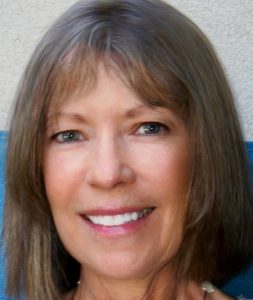 Dr. Jacqueline A. Sparks, social justice advocate, critical thinker extraordinaire, beloved university professor, ISEPP journal Editor-in-Chief, gifted therapist, and my best friend, died November 3rd after a lengthy illness. The world is not quite as good without her. Behind her voluminous publications, impeccable scholarship, and amazing writing abilities, Dr. Sparks championed two ideals in her work throughout her career. First and foremost, she was driven to transform systems of care to privilege the service user, especially their goals for service and how those goals are approached—to include consumers in all decisions that affect their care. Deeply embedded in her unyielding drive for client privilege was a call for cultural responsiveness and the promotion of social justice. Jacqueline operationalized this ideal in the Partners for Change Outcome Management System or PCOMS, a method that levels the hierarchy in therapy and honors service user views of benefit and relationship. Ten randomized clinical trials and four editions of the PCOMS manual later, this ideal has become manifest. Dr. Sparks was not only a great thinker, she also got things done.
Dr. Jacqueline A. Sparks, social justice advocate, critical thinker extraordinaire, beloved university professor, ISEPP journal Editor-in-Chief, gifted therapist, and my best friend, died November 3rd after a lengthy illness. The world is not quite as good without her. Behind her voluminous publications, impeccable scholarship, and amazing writing abilities, Dr. Sparks championed two ideals in her work throughout her career. First and foremost, she was driven to transform systems of care to privilege the service user, especially their goals for service and how those goals are approached—to include consumers in all decisions that affect their care. Deeply embedded in her unyielding drive for client privilege was a call for cultural responsiveness and the promotion of social justice. Jacqueline operationalized this ideal in the Partners for Change Outcome Management System or PCOMS, a method that levels the hierarchy in therapy and honors service user views of benefit and relationship. Ten randomized clinical trials and four editions of the PCOMS manual later, this ideal has become manifest. Dr. Sparks was not only a great thinker, she also got things done.
The second ideal was an unwavering commitment to challenge the status quo, to question presumed mental health authority and ask the hard questions. But this was not just rebellious talk to her, it emerged from a deep dive into research and exposing the science, or rather the science fiction masquerading as science, regarding psychiatric diagnoses and psychotropic medication. Our 2000 article in the Psychotherapy Networker, “The Myth of the Magic Pill,” called attention to the flawed science and the financial web of deceit of the pharmaceutical industry. This article was recognized by Project Censored as one of the “Top Ten Under-Reported Stories of 2000.” It also received the “The Networker 20thAnniversary All Time Top Ten Award” as one of the most influential features in magazine history. Since then, Dr. Sparks continued to question the “taken for granted,” exposing the bankrupt science and corruption that permeates psychiatric diagnosis and medication in multiple articles in top tier journals, uncovering the methodological tricks of drug company research and building the case for psychotherapy as a first line intervention for both every day and catastrophic problems that humans face. For this enormous body of work, Jacqueline received the Lifetime Achievement Award from the International Society of Ethical Psychology and Psychiatry.
Pictured below is Jackie smiling broadly holding the Psychotherapy Networker issue containing our award-winning article.

On a personal note, Jackie was also my closest friend, my ally through thick and thin. I counted on her keen analyses and insightful perceptions of any situation, personal or professional, and I knew I could always expect her unyielding support. Knowing this made me stronger and knowing her made me a better person.
Jackie was diagnosed last summer, and she courageously faced and endured everything that might prolong her life. Simultaneously she squeezed every ounce of enjoyment out of each day, playing her violin (she was a brilliant musician), decorating her new house, and traveling with her partner, Martin, and her sister and brother-in-law (Trish and John). Just a couple of weeks before she died, although not able to eat, she travelled to New York and profusely enjoyed a concert (Tedeschi Trucks Band) at the Beacon Theater and a Broadway musical (Six). She excitedly gave me a detailed description of the trip in our last conversation before she was hospitalized.
But treatment did not stop the aggressive spread of the cancer. Suddenly, months left became weeks left, and then days left—the end came unexpectedly rapidly. Our plan for her and Martin to escape the cold and stay with Barbara and I in January was not going to happen. With her death imminent, I flew to Rhode Island to give my last goodbye to my best friend. It was devastating, yet beautiful and inspirational. When Jackie awakened and saw me, she cried and we shared 25 years of love expressed in joyful tears. Unbelievably, in her weakened state, she asked the nurse to help sit her up, with her legs over the side of the bed so she could face me. Her body barely there and her voice but a whisper, we talked until she couldn’t anymore. We discussed our work, our history, our relationship—we laughed and cried, and said everything that needed to be said.
After an emotionally soothing dinner with her fantastic partner, Martin, also a lifelong social justice advocate, I laid awake that night in my hotel feeling the brunt of my grief. Because I couldn’t accept that I wouldn’t see her or talk to her again, I planned to stop at the hospital and see her one last time on the way to the airport. I summoned a car on a familiar service and waited…and waited until I got the message that no cars were available. I had never experienced this before, but this was a small town, not like the cities I usually frequented. I was frantic. I called other local services but only got recordings. When I was about at my wits end, the front desk person, Stacy, said she would get back to me. I told her I would gladly pay $20 (the cost of the service) for the ride if anyone there could do it. The manager okayed it, and Lucas, a young man of no more than 19 took me to South County Hospital where my friend lay in a Hospice bed. Lucas, who I noticed was not wearing trendy clothes or expensive sneakers or anything even remotely new, asked me about my friend and told me of his grandma’s battle with cancer. We enjoyed a quiet, empathic, and melancholic ride, our shared experience making an unspoken connection in minutes, if not seconds. There was a wonderful, comforting kindness to this young man that provided some solace to my grief. When we arrived after our brief trip, I pulled out my wallet to give him the twenty, and he told me he couldn’t accept any money from me. I asked if he was sure as it was clear he could use it, but he declined and wished me the best.
I was disappointed because Jackie did not regain consciousness for my final visit. In fact, she didn’t regain consciousness after I left her the night before. I felt fortunate and gratified that I had said everything I wanted to say the day before. But I still said everything I wanted to say, again. Jackie died later that day. But as I experienced my grief about the loss of this stunningly compassionate, brilliant human being, I realized that Lucas somehow personified Jackie’s kindness and integrity. In this world of vitriol and hatred, there are those who care about the plight of others, and act to ease their burden in small but meaningful ways. Thank you, Lucas, for showing the spirit of Jackie, and continuing my faith in the human species.
And thank you, Jackie, for being in my life, enriching me personally and professionally, and being the friend who everyone should be fortunate to have. I love you. I miss you—along with many others whose lives you touched.
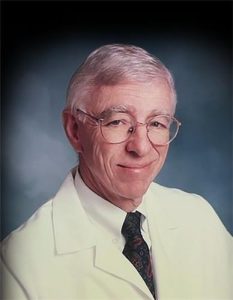 We are saddened to hear about the death of a legend in the critical psychiatry and psychology fight. Fred Baughman, M.D., died last October, peacefully at his home in El Cajon, California. Fred was a giant in the field and accomplished an incredible amount in his profession and well as creating a wonderful family environment at home. One of his many accomplishments was the publication of his 2006 book, The ADHD Fraud: How Psychiatry Makes Patients Out of Normal Children. The world will not be the same without him.
We are saddened to hear about the death of a legend in the critical psychiatry and psychology fight. Fred Baughman, M.D., died last October, peacefully at his home in El Cajon, California. Fred was a giant in the field and accomplished an incredible amount in his profession and well as creating a wonderful family environment at home. One of his many accomplishments was the publication of his 2006 book, The ADHD Fraud: How Psychiatry Makes Patients Out of Normal Children. The world will not be the same without him.
 Dr. Jacqueline A. Sparks, social justice advocate, critical thinker extraordinaire, beloved university professor,
Dr. Jacqueline A. Sparks, social justice advocate, critical thinker extraordinaire, beloved university professor, 
 EHPP's new Editor-in-Chief is Don Marks, Psy.D., Associate Professor and Director of Clinical Training at Kean University, NJ. He is a clinical health psychologist specializing in strategies for living with chronic pain and advanced illness. His work on psychological interventions for chronic pain has led to research regarding sport injury and athlete psychological well-being. He is also a marriage and family psychologist, working primarily with couples and families facing medical illness. Dr. Marks completed both the professional practicum and internship in mindfulness-based stress reduction (MBSR) at the Jefferson-Myrna Brind Center of Integrative Medicine of Thomas Jefferson University Hospitals. He completed his postdoctoral fellowship and served as a clinical instructor in psycho-oncology and palliative medicine at The Ohio State University Medical Center. He has been a member of the Association for Contextual Behavioral Science (ACBS) since 2005, and he has served as president of the organization's Greater New York chapter. Dr. Marks is the past Editor-in-Chief of the Journal of Clinical Sport Psychology.
EHPP's new Editor-in-Chief is Don Marks, Psy.D., Associate Professor and Director of Clinical Training at Kean University, NJ. He is a clinical health psychologist specializing in strategies for living with chronic pain and advanced illness. His work on psychological interventions for chronic pain has led to research regarding sport injury and athlete psychological well-being. He is also a marriage and family psychologist, working primarily with couples and families facing medical illness. Dr. Marks completed both the professional practicum and internship in mindfulness-based stress reduction (MBSR) at the Jefferson-Myrna Brind Center of Integrative Medicine of Thomas Jefferson University Hospitals. He completed his postdoctoral fellowship and served as a clinical instructor in psycho-oncology and palliative medicine at The Ohio State University Medical Center. He has been a member of the Association for Contextual Behavioral Science (ACBS) since 2005, and he has served as president of the organization's Greater New York chapter. Dr. Marks is the past Editor-in-Chief of the Journal of Clinical Sport Psychology.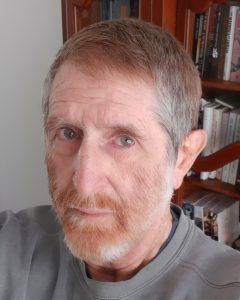 We are also excited to announce that Niall (Jock) McLaren, MBBS, FRANZCP, was selected as an Associate Editor of EHPP. He joins our current Associate Editor, Jim Tucker, Ph.D., in assisting Dr. Marks in continuing to make EHPP an important voice in the critical psychology and critical psychiatry field. Dr. McLaren is an Australian psychiatrist who recently retired after 50 years of practice. He is an Honorary Research Fellow in the Department of Philosophy at University of Queensland. He has published a number of monographs on the application of the philosophy of science to mental disorder, most recently with a fierce critique of the so-called "bio-psycho-social" model, showing how it is without substance. He lives in the rural outskirts of Brisbane with his family and keeps busy growing trees.
We are also excited to announce that Niall (Jock) McLaren, MBBS, FRANZCP, was selected as an Associate Editor of EHPP. He joins our current Associate Editor, Jim Tucker, Ph.D., in assisting Dr. Marks in continuing to make EHPP an important voice in the critical psychology and critical psychiatry field. Dr. McLaren is an Australian psychiatrist who recently retired after 50 years of practice. He is an Honorary Research Fellow in the Department of Philosophy at University of Queensland. He has published a number of monographs on the application of the philosophy of science to mental disorder, most recently with a fierce critique of the so-called "bio-psycho-social" model, showing how it is without substance. He lives in the rural outskirts of Brisbane with his family and keeps busy growing trees.


 ISEPP Lifetime Achievement Award - for recognition of sustained and dedicated efforts made throughout one’s career in the struggle to overturn the medical model of human distress. Presented to Jacqueline Sparks, Ph.D.
ISEPP Lifetime Achievement Award - for recognition of sustained and dedicated efforts made throughout one’s career in the struggle to overturn the medical model of human distress. Presented to Jacqueline Sparks, Ph.D. 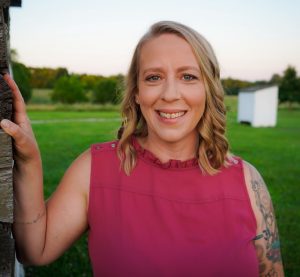 ISEPP Special Achievement Award
ISEPP Special Achievement Award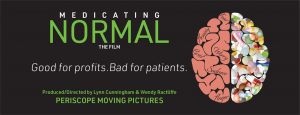 Mary Karon Memorial Award for Humanitarian Concerns
Mary Karon Memorial Award for Humanitarian Concerns
 Listen to ISEPP's Executive Director Dr. Chuck Ruby being interviewed about his ideas on the mental health industry on
Listen to ISEPP's Executive Director Dr. Chuck Ruby being interviewed about his ideas on the mental health industry on 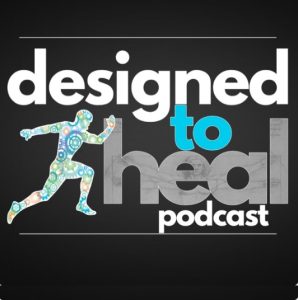
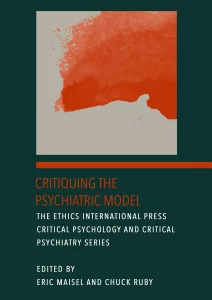 The
The 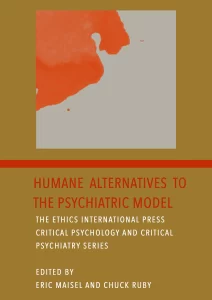 Act now to get your copies. Don't miss out on an opportunity to hear from some of the brightest thinkers in the field.
Act now to get your copies. Don't miss out on an opportunity to hear from some of the brightest thinkers in the field.



 ISEPP has joined several other international groups
ISEPP has joined several other international groups